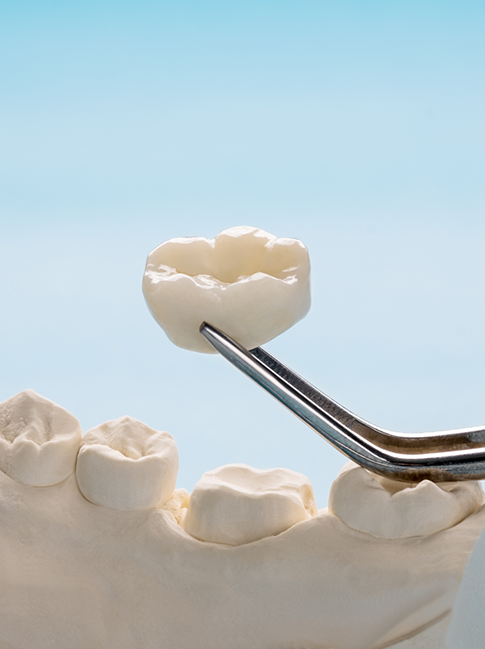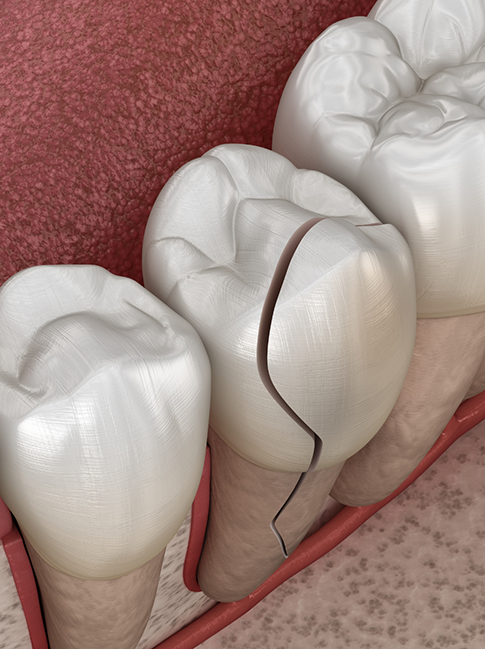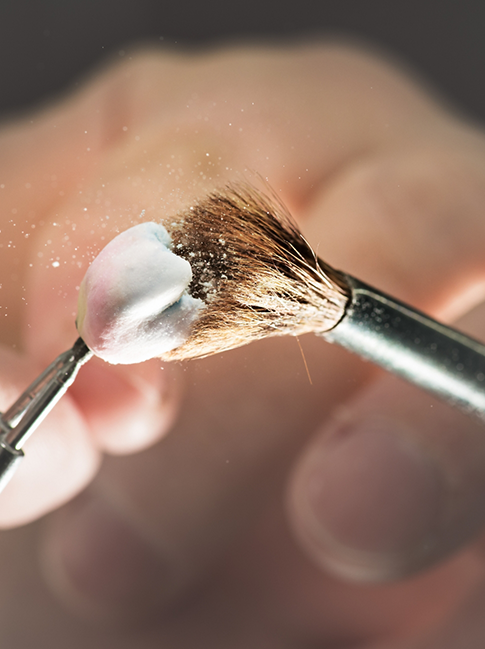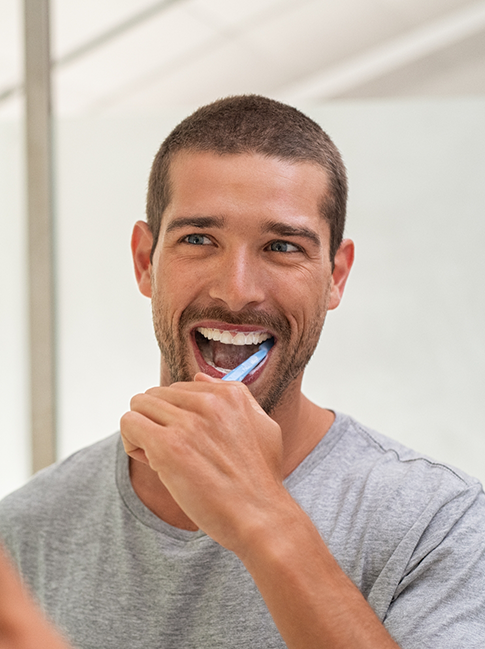Dental Crowns Pleasanton
Strong & Sturdy Restorations for Damaged Teeth

A damaged, broken, or severely decayed tooth can leave your smile looking and feeling a bit lackluster, but at Brush Country Dental Center, we can make your smile look as good as new. Dr. Pruski, along with her talented dental team, works with patients of all ages to create beautiful and healthy smiles that are made to last a lifetime. For restoring a smile’s health, a dental crown in Pleasanton may be the best way to do it.
Why Choose Brush Country Dental Center for Dental Crowns?
- Natural-Looking & High-Quality Dental Materials Used
- Local Dentist with Over 20 Years of Experience
- Serving Families in Pleasanton for Decades
What Are Dental Crowns?

A dental crown is a specially crafted cap that is designed to fit comfortably over your natural tooth. Crowns can be made from ceramic or porcelain. The crown is made to look and feel like your natural tooth, making it the perfect solution for covering up a wide range of imperfections. Once permanently glued in place, the crown will blend in with your other teeth and allow you to chew as usual.
Why Do You Need a Dental Crown?

Your dentist may suggest that you get a crown for a variety of reasons. Since the crown is placed over your natural tooth, it can be used to correct a number of issues, such as:
- Severe tooth decay (those that cannot be fixed with a dental filling)
- Cracked or fractured teeth
- Discolored or stained teeth
- Root canal treatment
- As a tooth replacement on a dental implant
- Supporting a dental bridge
The Process of Getting a Dental Crown

The journey to getting your radiant smile back with a dental crown typically requires two visits to our dental office. To start things off, the dentist will prepare your tooth for the crown by clearing away any decay and shaping the tooth structure to provide the best support for the crown to fit comfortably and securely.
Next, an impression or scan of your teeth is taken that will serve as the foundation for constructing the crown. The permanent crown will take approximately three weeks to be crafted, so in the meantime, your dentist will provide you with a temporary crown that will cover your tooth until the next appointment. Once the permanent crown is completed, you will have a shorter second appointment to fit the new crown to your tooth and cement it in place, completing your new smile.
How to Take Care of Your Dental Crown

After you get your crown, you should maintain a complete and consistent oral hygiene routine to keep your crowned tooth healthy. For great oral hygiene and a long lasting smile, you should:
- Brush twice a day
- Floss once a day
- Use fluoridated toothpaste
- Consider using a water flosser
By following this routine, you will clear away any food particles and bacteria that can lead to tooth decay. Also, by using fluoridated dental products, you are strengthening your teeth and preventing them from decay. You should also make sure that you go to your regularly scheduled dental appointments and cleanings.
While dental crowns are durable, they are not indestructible. It's recommended that you avoid chewing exceptionally hard foods, such as ice or hard candies, and break bad habits such as chewing on pencils or biting fingernails. Any of these habits can damage the crown which would then need to be repaired or replaced by your dentist.
Reach Out to Our Dental Team Today

If you're ready to get started on the path to your new smile with dental crowns, or any of our other dental services, you can schedule an appointment with us by giving us a call at (830) 569-2500 or using our simple online appointment request form. We look forward to meeting you and helping you achieve a healthier smile!
Dental Crown FAQs
How Long Do Dental Crowns Last?
Dental crowns are built to last, but they’re not meant to be permanent fixtures. On average, crowns last between 10 to 15 years. With excellent care, some can stay stable even longer. Their lifespan mostly depends on the material used, your oral hygiene habits, and whether you grind or clench your teeth.
At Brush Country Dental Center, Dr. Pruski uses high-quality materials designed for strength and longevity. Regular dental checkups and cleanings will help catch early signs of wear and tear before your restoration is compromised. Our team can also offer personalized guidance and items like nightguards to protect your investment.
How Do You Know When a Dental Crown Needs to Be Replaced?
While dental crowns are extremely durable, they can wear down or become damaged over time. Some signs it’s time for a replacement include:
- A loose or wobbly restoration
- Visible cracks or chips in the surface
- Sensitivity or pain when biting down
- Gum irritation or recession around the crown
If you notice any of these, it may mean that decay has developed underneath, the crown is old, or it’s too damaged to function properly. At our Pleasanton dental practice, we’ll evaluate your crowns during every checkup to ensure they’re still doing well. If we notice discomfort or damage, our Pleasanton dentist, Dr. Pruski, will give you your options right away.
Do Dental Crowns Get Cavities?
Dental crowns themselves can’t develop cavities because they’re made from inorganic materials like porcelain or metal. However, the natural tooth underneath is still at risk of decay, especially at the margin where the crown meets the gumline.
Poor brushing habits or skipped flossing can allow bacterial plaque to build up around the base of the crown, leading to problems beneath the surface. To keep your crowned tooth healthy, be sure to brush twice a day with fluoride toothpaste, floss daily, and stay on top of regular cleanings and checkups.
Does It Hurt to Get a Dental Crown?
Thanks to modern dentistry, getting a crown is usually a comfortable experience. At our Pleasanton practice, Dr. Pruski uses gentle techniques and local anesthetic to numb the area before shaping your tooth. Most patients report little to no discomfort during the procedure.
Afterward, it’s normal to feel a bit of sensitivity for a few days, especially to hot or cold foods. Over-the-counter pain relievers like ibuprofen and acetaminophen can help manage any mild soreness. If you’re still nervous, ask our team about sedation options or ways we can make your visit as relaxing as possible. Your comfort is always our priority!
